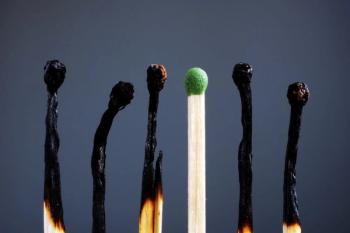
Personal and Professional Priorities in Physician Burnout
Key Takeaways
- Physician burnout is prevalent, largely due to disempowering healthcare systems, despite efforts like Chief Wellness Officers.
- The debate on medicine as a calling versus a job reflects differing priorities between professional dedication and personal life.
Is medicine a calling or a job?
PSYCHIATRIC VIEWS ON THE DAILY NEWS
By whatever surveys I have come across, physician burnout still seems to hover around epidemic levels. Although it seems clear that a disempowering system is the major cause, little inroad has been made to improve our systems of care, even when Chief Wellness Officers are in place.
Instead, as the Wall Street Journal article of November 3, 2024, “Young Doctors Want Work-Life alone. Older Doctors Say That’s Not the Job,”1 recently pointed out, the focus has turned into a debate on what kind of work being a physician is: a calling or a job?
As a calling, being a physician posits healing as the ultimate goal and personal needs become secondary as long as that goal can be met. “Being married to medicine” was a motto of that approach.
As a job, being a physician is like any other professional job, with the emphasis on a personal life just as important. Work hours and a lifestyle become a priority, perhaps as reflect in the increasing emphasis on lifestyle within the American Psychiatric Association.
Perhaps medicine is going through the same struggle of values as that I discussed about politics yesterday. What takes priority in work and lifestyle? Medicine or families? In politics, expertise or loyalty? In politics at the extremes, knowledge of the people is the greater good potential of democracy and the personal approach is authoritarianism. Perhaps this reflects a moral realigning going on in this country.
My sense is that if we keep turning medicine and psychiatry to a priority of lifestyle, that burnout will lessen. Without an overriding priority on healing at all costs, external limitations will not be as personally destructive. It will not be a complete solution, though, because burnout has been increasing in other workplaces and even in parenting.
Perhaps it is in the individualized balance of work-life balance that is the future key. Can we maintain enough priority on healing balanced out in a lifestyle that can better fulfill general personal well-being?
Dr Moffic is an award-winning psychiatrist who specialized in the cultural and ethical aspects of psychiatry and is now in retirement and retirement as a private pro bono community psychiatrist. A prolific writer and speaker, he has done a weekday column titled “Psychiatric Views on the Daily News” and a weekly video, “Psychiatry & Society,” since the COVID-19 pandemic emerged. He was chosen to receive the 2024 Abraham Halpern Humanitarian Award from the American Association for Social Psychiatry. Previously, he received the Administrative Award in 2016 from the American Psychiatric Association, the one-time designation of being a Hero of Public Psychiatry from the Speaker of the Assembly of the APA in 2002, and the Exemplary Psychiatrist Award from the National Alliance for the Mentally Ill in 1991. He is an advocate and activist for mental health issues related to climate instability, physician burnout, and xenophobia. He is now editing the final book in a 4-volume series on religions and psychiatry for Springer: Islamophobia, anti-Semitism, Christianity, and now The Eastern Religions, and Spirituality. He serves on the Editorial Board of Psychiatric Times.
Reference
1. Chen TP. Young doctors want work-life balance. Older doctors say that’s not the job. The Wall Street Journal. November 3, 2024. November 15, 2024.
Newsletter
Receive trusted psychiatric news, expert analysis, and clinical insights — subscribe today to support your practice and your patients.







